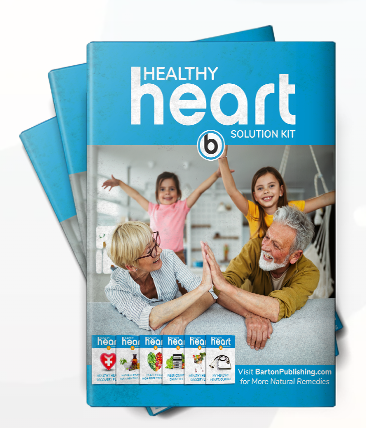
6 Simple Steps How To Check If Your Heart Is Ok?
No Fancy Gear Needed
How To Check If Your Heart Is Ok?
Your heart is the engine that keeps your body working efficiently. It is mandatory for anyone to know the basics of “How To Check If Your Heart Is Ok?”. The Heart circulates blood, supplying oxygen and nutrients to all cells while eliminating waste. Keeping your heart healthy is critical for general health, but how can you measure its condition without expensive equipment or medical tests? Surprisingly, there are various simple ways to monitor your heart health from the comfort of your own home.
How To Check If Your Heart Is Ok?
1. Check Your Resting Heart Rate (RHR)
Your resting heart rate is the number of times your heart beats per minute while at rest. A lower resting heart rate usually means improved cardiovascular fitness. You may simply determine your RHR by taking your pulse at your wrist or neck and counting the beats for 60 seconds. Alternatively, count for 15 seconds and multiply by four. A normal resting heart rate for people ranges between 60 and 100 beats per minute, while athletes or those with a high level of fitness may have a lower RHR.
That’s your resting heart rate! The lower, the better. It’s like your heart whispering to you, “Hey, I’m in great shape!”
How To Check If Your Heart Is Ok?
2. Test Your Recovery Time
Another sign of heart health is how quickly your heart rate returns to normal following physical exertion. Exercise at a moderate level, such as brisk walking or jogging, for at least 20 minutes. After stopping, check your pulse at regular intervals to see how your heart rate is recovering. A quicker return to your resting heart rate indicates improved cardiovascular fitness and a healthier heart.
How To Check If Your Heart Is Ok?
3. Check Your Blood Pressure
High blood pressure (hypertension) is a major risk factor for heart disease and stroke. You can take your blood pressure at home with a digital blood pressure monitor, which is readily available at most pharmacies. To ensure an accurate assessment, carefully follow the device’s instructions and take repeated readings at different times of day. Normal blood pressure readings are normally less than 120/80 mm Hg, though optimal levels may differ depending on individual health considerations.
How To Check If Your Heart Is Ok?
4. Listen to Your Body
Pay close attention to any symptoms or warning signs of cardiac problems, such as chest pain, shortness of breath, dizziness, or palpitations. While these symptoms may not necessarily indicate that you have a cardiac issue, they should not be ignored. If you have any troubling symptoms, you should contact a healthcare expert right once.
How To Check If Your Heart Is Ok?
5. Assess Your Lifestyle
Your daily habits have a big impact on heart health. Evaluate your lifestyle choices, such as nutrition, exercise, stress management, and sleep quality. A well-balanced diet rich in fruits, vegetables, whole grains, and lean meats, combined with regular exercise and stress-relieving activities such as meditation or yoga, can help keep the heart healthy. Additionally, emphasize getting a enough amount of quality sleep each night, as poor sleep patterns have been related to an increased risk of heart disease.
6. Know Your Family History
Genetics can also affect your chances of acquiring heart disease. If you have a family history of heart disease, you may be at an increased risk yourself. Be aware of any cardiovascular diseases or risk factors in your family, and discuss them with your doctor to build an effective preventative or therapy strategy.
While these home-based exams provide useful information about your heart health, they are not a substitute for regular medical check-ups. It is critical to speak with a healthcare professional for a thorough evaluation and tailored suggestions based on your unique health profile. By taking proactive efforts to monitor and maintain your heart health, you can lower your chances of developing cardiovascular disease and live a longer, healthier life.
1. What are some risk factors for heart disease?
High blood pressure, high cholesterol levels, smoking, diabetes, obesity, sedentary lifestyle, poor diet, a family history of heart disease, and excessive alcohol consumption are all common risk factors.
2. How can I improve my heart health?
You can improve your heart health by leading a healthy lifestyle that includes regular exercise, a well-balanced diet rich in fruits, vegetables, whole grains, and lean proteins, stress management, quitting smoking, limiting alcohol consumption, and regular check-ups with your doctor.
3. How often should I exercise for good heart health?
Aim for at least 150 minutes of moderate-intensity aerobic exercise or 75 minutes of vigorous-intensity aerobic exercise per week, as well as muscle-strengthening activities on two or more days per week, according to the American Heart Association.
4. What role does diet play in heart health?
A balanced diet promotes heart health by supplying necessary nutrients and lowering the risk of obesity, high cholesterol, high blood pressure, and inflammation. Encourage a diet high in fruits, vegetables, whole grains, lean proteins, and healthy fats, while reducing processed foods, saturated fats, and added sweets.
5. How can I lower my cholesterol levels?
To lower cholesterol, eat a heart-healthy diet low in saturated and trans fats, exercise regularly, maintain a healthy weight, quit smoking, limit alcohol use, and, if necessary, take prescribed medications as instructed by your doctor.
6. Can stress affect heart health?
Yes, prolonged stress can harm heart health by increasing blood pressure, promoting unhealthy coping habits like overeating or smoking, causing inflammation, and increasing the risk of heart disease. Meditation, deep breathing, and regular exercise can all assist to reduce stress.






